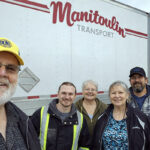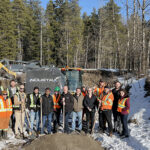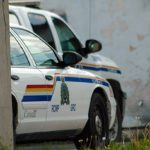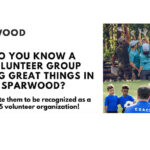Home »

East Kootenay seniors receiving Age-Friendly BC Grants
Seniors around the East Kootenay are benefitting from a total of $60,000 in Age-friendly grants from the provincial government. The funding will support older residents in staying healthy and active in the community.
Three projects are each receiving $20,000, including: Cranbrook , Expand Community; Kimberley, Grand Friends Seniors Youth Mentoring Program; and Sparwood – upgrade kitchen and cooking education.
Age-Friendly BC provides grants of up to $20,000 to help communities create or continue a variety of projects which help address the needs of the older population. Age-friendly initiatives can range from setting public policy to physical improvements to address the needs of older residents. Examples of age-friendly community changes can include: widening sidewalks, installing benches, maximizing green space, as well as making information, programs and services more accessible to the older population.
The province has worked with local governments, the Union of British Columbia Municipalities and other partners to achieve a vision where people of all ages and abilities feel included and valued in their communities.
“Creating age-friendly communities is about more than just supporting our seniors – it’s about creating places that are accessible, inclusive, and welcoming to people of all ages and abilities,” stated East Kootenay MLA Bill Bennett.
In September 2011, Premier Christy Clark announced the launch of Age-Friendly BC, a grant and recognition program to help local governments create environments that support the good health and community participation of seniors. Due to an overwhelming response from communities, the Province has provided an additional $750,000 to further support age-friendly community planning and projects.
The Age-Friendly BC program focuses on providing communities with support, information and recognition to help meet the needs of an aging population. Local governments can achieve age-friendly recognition and officially become an Age-friendly BC community once they have completed four basic steps that focus on community engagement, commitment, assessment and action. Local governments can apply to be recognized using applications available at https://www.seniorsbc.ca/agefriendly/ and are being accepted until February 29, 2012.
“We are proud to partner with the Province on the Age-friendly BC program and it is wonderful to see how many B.C. communities completed some form of age-friendly initiative to support the needs of their older residents,” said Heath Slee, president, Union of British Columbia Municipalities and Regional District of East Kootenay Electoral Area B director.
“Seniors are the cornerstone of families and communities. Through Age-friendly BC, local governments have worked hard to create programs and tools that allow seniors to be healthier, active members of the community. These communities are demonstrating that even modest improvements can make a real difference in the lives of seniors,” added Michael de Jong, Minister of Health.
Quick Facts:
By 2031, close to 1.5 million British Columbians, or almost a quarter of the province’s population, will be over 65.
Since 2007, the Ministry of Health has supported communities across B.C. by providing tools to help them respond to an aging population:
In June 2011, the province – in partnership with the BC Chamber of Commerce-launched a guide entitled ‘Creating an Age-friendly Business in B.C.’ for businesses to address the needs of older customers and employees.
In September 2011, B.C. launched ‘Becoming an Age-friendly Community: Local Government Guide’, a new tool for local governments, community organizations or local champions to help them create an age-friendly community.
B.C. has 18 BC Seniors Community Parks – located right across the province – that are designed to help older adults stay mobile, physically active, and healthy in their communities.
The easy-to-read B.C. Seniors’ Guide contains information on a range of topics including transportation options, housing, health services and healthy living. It is also available in Chinese, Punjabi and French translations and includes telephone numbers and website information for frequently used resources.
In 2009, the Province partnered with the United Way of the Lower Mainland to develop and pilot the Community Action for Seniors’ Independence (CASI) project in five communities – including Maple Ridge. CASI givesseniors access to a range of non-medical home support services such as transportation, housekeeping, home repair, yard maintenance, friendly visiting and information to help them remain independent longer.
e-KNOW







